In a Nutshell:
- Clothing irons are often coated with a non-stick coating that may contain toxic PFAS “forever chemicals.”
- It’s very difficult to determine whether a specific product contains PFAS because brands are not required to disclose it.
- I spent a long time calling and emailing brands in order to find out if their irons are PFAS-free or not. You can see my results for each brand below!
- My top choice for a PFAS-free clothes iron is Rowenta.
Believe it or not, toxic PFAS chemicals could be on your iron.
When you need to make a good first impression, wrinkle-free clothes are a must-have. What you don’t need, however, are clothes contaminated with PFAS from the clothes steamer or iron you had pressed them with the previous night. That would be a health hazard to you.
Fortunately, there are PFAS-free clothes steamers and irons on the market. Finding them may be a time-consuming hassle. To make it easier for you, I’ve carefully surveyed over 10 brands of these appliances to identify the ones that are truly PFAS-free.
In this article, you’ll find my top choices for the best PFAS-free clothes steamers and irons. I’ve also included information relayed to me by company reps on many popular consumer brands of these appliances.
Table of Contents
- What are PFAS?
- Consumer Products Containing PFAS
- What Are The Human Health Effects Of PFAS?
- Why Are PFAS A Problem In Clothes Steamers And Irons?
- Top Choice for PFAS-Free Clothes Irons and Steamers
- Runners Up: PFAS-Free Clothing Irons and Steamers
- Other Popular Clothes Irons and Steamers That Didn’t Make the Cut
- My Top Choice For A PFAS-Free Ironing Board Cover
- 10 Tips When Buying A PFAS-free Clothes Iron or Steamer
- Key Takeaways on PFAS-Free Clothing Steamers and Irons
This article contains affiliate links, which means we may earn commission if you decide to make a purchase.
What are PFAS?
Short for per- and polyfluoroalkyl substances, PFAS are fluorine-containing chemicals derived from fossil fuels.
They are also known as forever chemicals. Because of their chemical structure, PFAS don’t break down readily into harmless compounds. In fact, they stick around (basically forever, hence their nickname!), wreaking havoc on environmental and human health.
PFAS have been widely used in many industries for decades because they are excellent water and oil repellents. They’ve been found as far away as the Arctic and as close as your bloodstream. No joke; they’re in 98% of humans—including the unborn. So, it’s no surprise that a 2023 report showed PFAS have been detected in over 45% of all drinking water samples in the United States.
This is a very worrisome finding. If you’re looking for the best way to ensure your water is PFAS-free, check out my article on water purifiers where I make recommendations and review some popular water filter technologies.
Consumer Products Containing PFAS
Since both water and oil bounce right off of them, PFAS are common in outerwear, shoes, boots, and outdoor gear. They are also the active ingredients in a lot of furniture, carpet, and clothing stain repellents and cleaners.
Some other consumer products containing PFAS include (and this list is by no means complete):
- Food packaging (fast food wrappers and microwave popcorn especially)
- Non-stick cookware
- Cleaning products
- Underwear (especially period underwear)
- Personal care products (dental floss included)
- Cosmetics
The Environmental Working Group has put together a helpful list of some products made without intentionally added PFAS (although, it’s unfortunately a bit outdated at this point).
Unfortunately, irons and steamers are not on this list.
EWG includes the word intentionally because sometimes the factories where the products are manufactured may contain PFAS on the machinery that comes in contact with the products. These PFAS are considered contaminants.
Unfortunately, there is little you can do to avoid unintentional PFAS in products. To my knowledge, there aren’t any factories certified as PFAS-free—at least not yet.
What Are The Human Health Effects Of PFAS?
An ever-growing body of research, recently summarized in the journal Lancet, is revealing the multiple ways that PFAS adversely affect human health. With new discoveries published regularly (none of them good), PFAS are a class of chemicals that persist indefinitely in the human body and should be avoided whenever possible.
A 2022 study analyzed the economic impacts of unregulated PFAS-attributable diseases in the U.S.: $5.52 billion up to $62.6 billion per year. A 2023 study found the estimated cost to be about $17.5 trillion per year across the globe.
Hopefully, government officials will take note and act quickly to contain this health crisis by implementing and enforcing PFAS regulations.
As endocrine disruptors, PFAS can be detrimental in very small amounts, affecting a number of important body systems such as the reproductive and neurological systems.
In November 2023, the International Agency for Research on Cancer (IARC) declared one PFAS, PFOA, to be carcinogenic. A second one, PFOS, was listed as a possible human carcinogen.
The negative health impacts of PFAS include:
- Thyroid dysfunction
- Non-alcoholic fatty liver disease
- Cancer cell migration
- Heightened severity of Covid-19
- Greater likelihood of asthma
- Increased risk of premature birth
- Reproductive abnormalities in women
- Weakened response to vaccines
- Increased risk of testicular cancer
- Birth defects
- ADHD
- Elevated cholesterol
- Reduced fertility in men and women
- High blood pressure in middle-aged women and in pregnant women
Why Are PFAS A Problem In Clothes Steamers And Irons?
There are two major ways that PFAS on clothes steamers and irons could be a problem. Each one by itself is bad. When they occur at the same time, the potential danger is greater.
- High temperature
A PFAS coating on a clothes steamer or iron should be safer at room temperature and on low settings. Basically, this means when the appliance is brand new and unused or barely warm, there is little risk.
However, once you begin heating it to high temperatures during normal operation, PFAS could be released from the surface.
The nonprofit Ecology Center has tested non-stick cookware and determined that when heated at approximately 500℉, hazardous PFAS fumes are formed. The chemicals may also be released from the cookware’s surface and migrate into food.
There is some debate about what the exact “cut-off” temperature is, though. For example, the nonprofit Clean Water Action warns that temperatures at or above 400℉ are worrisome for these reasons.
Unfortunately, the highest temperatures that clothes irons and steamers are in this range. A few customer service reps told me that 375-450℉ at the highest setting is normal. One specified that the actual temperature could be as much as 15℉ above that.
In my opinion, that’s too close to the temperature danger zone. To err on the side of caution, ensuring the appliance is PFAS-free is the way to go.
- Scratches
Through normal wear and tear, it’s possible that scratches and nicks could appear on the soleplate. Much like a scratched PFAS-coated frying pan becomes hazardous, a damaged PFAS-coated clothes steamer or iron is also dangerous.
Microscopic PFAS chemicals disengage from the surface when scratched. They are free to migrate over the clothes you’re steaming or ironing, into the air/steam you’re breathing, or into the dust in your home (which you might breathe in at a later date).
The risk of PFAS migration to your clothes—and subsequently to your skin when you wear them—is heightened if your PFAS-coated iron or steamer is old, scratched, and operating at high temperatures.
Top Choice for PFAS-Free Clothes Irons and Steamers
After 10+ hours of phone and Internet research, I can unreservedly endorse only one company that sells PFAS-free clothes irons and steamers.
In making my decisions, I considered:
- How transparent the company websites were about the presence of PFAS on their products
- The perceived knowledgeability and truthfulness of the consumer reps I spoke with.
I encountered many difficulties doing this research. If a company was unreachable by phone, did not reply to my email requests for information within three business days, or did/could not answer my questions, they did not make my list of recommended products.
Rowenta
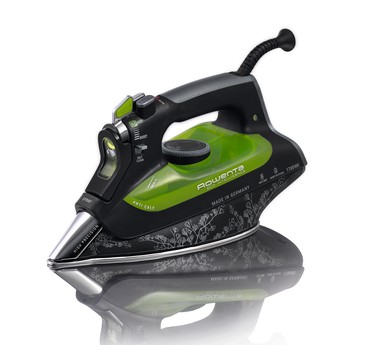
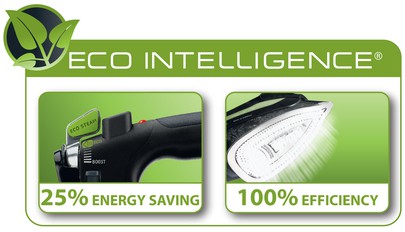
Of all the companies I contacted, Rowenta stands out as the best. When speaking with a Rowenta employee who responded promptly without a wait, I even rephrased my question about PFAS coatings in three different ways about several products during our conversation to get confirmation of their claim that none of their irons or steamers have been coated with PFAS.
The company also replied to my email within a day after sending for confirmation by reiterating this point. If you are shopping for a PFAS-free clothes iron or steamer, Rowenta is my top brand.
You can find Rowenta at stores like Target and Williams Sonoma.
Runners Up: PFAS-Free Clothing Irons and Steamers
The following companies reported to me that their clothes irons and steamers do not contain PFAS. However, because of various issues I had in getting this information, I’m calling them runners up. I do not wholeheartedly endorse them like I do with Rowenta. In some cases, I remain skeptical of the alleged PFAS-free status of their products, and I explain why below.
Mueller
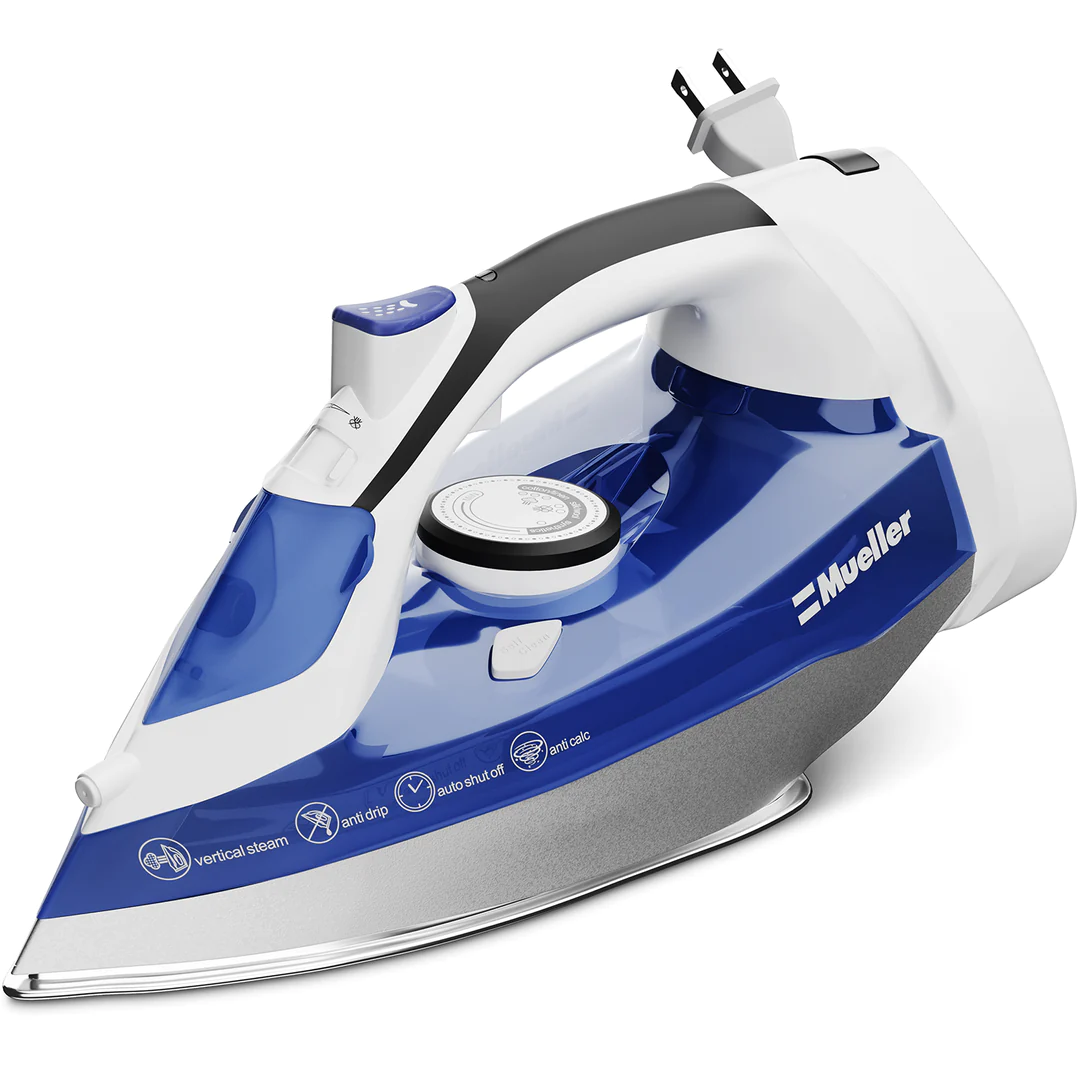
Although highly recommended by some Internet influencers, I cannot wholeheartedly agree. Mueller responded within a day to my email only to ask for a product number. I was surprised by the question since, according to their website, they sell only one iron. I supplied the SKU number. Then they replied: “Our iron doesn’t have any PFAS chemicals. It’s only sheet steel.”
Interestingly, the same person who responded to that email eventually responded to an email I had sent to PurSteam, but over a week later. This suggests the manufacturer sells the same iron under different brand names.
Mueller has a phone number prominently displayed on their homepage. When I called the number on two different days, I got an automatic message both times after the first ring stating they weren’t taking calls at that time and to try again later. (On both occasions, I called during normal business hours.)
Unfortunately, the product page on their website is not helpful either when it comes to the product’s materials.
Hamilton Beach
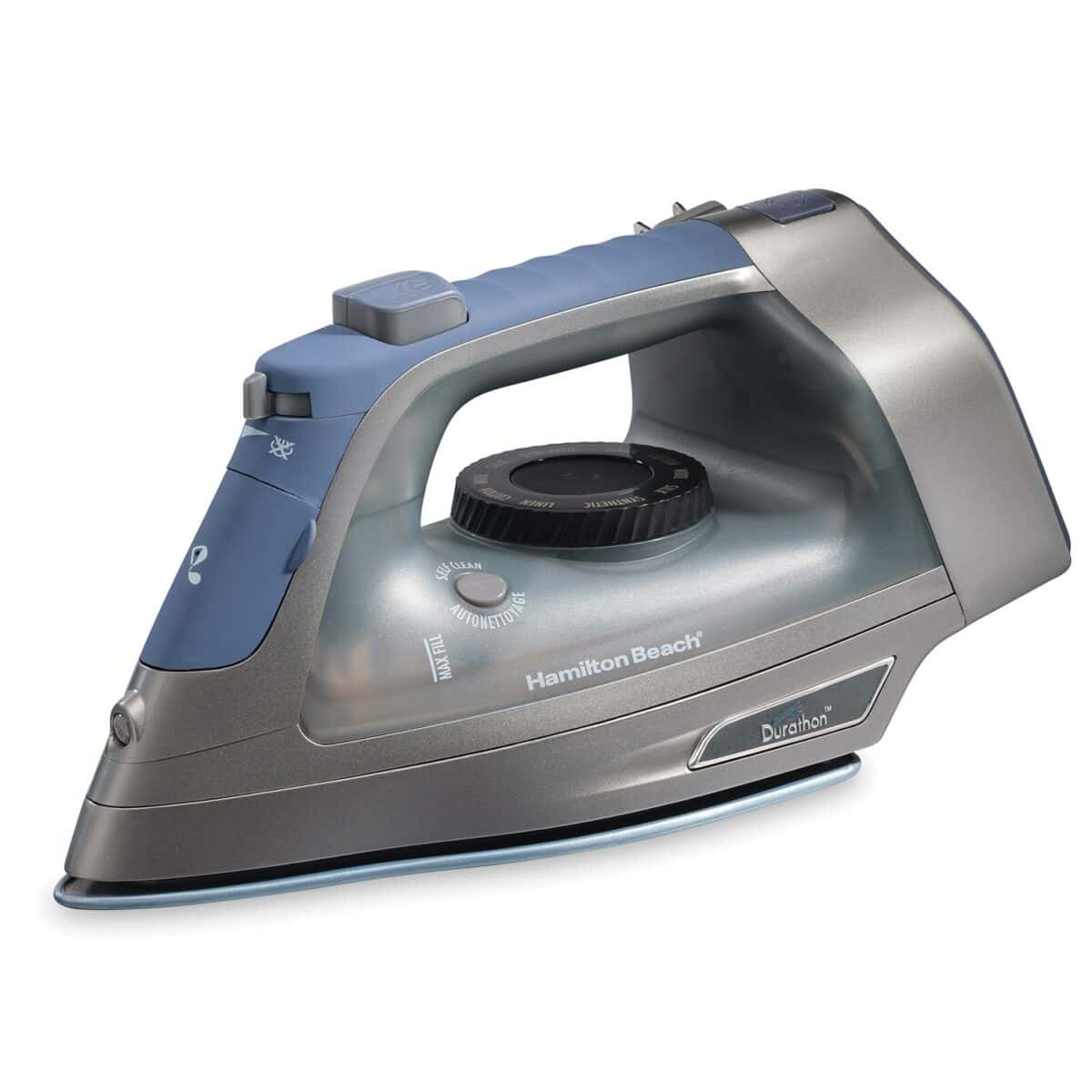
Another favorite of influencers and consumers, Hamilton Beach lists no phone number on its Contact Us page. It states business hours and live chat support. However, my attempts at chat didn’t receive a response during those hours, nor the following day. No email address is given, either. Interestingly, the posted street address is the same one that some of its competitors have.
I discovered later, on a call with a Chi Steam rep, that Hamilton Beach, Proctor Silex, and Chi Steam are brands under the same company. That explains why, in an email to Proctor Silex, the rep sent a Hamilton Beach link.
The website product page lists very little information about the “non-stick” soleplate. The rep told me that they sell one iron, model 14980, with a stainless steel soleplate without a coating. The others have ceramic soleplates with a proprietary Durathon coating. It is non-stick.
The rep insisted that Hamilton Beach complies with the U.S. Food and Drug Administration (FDA) regulations about PFAS. She sent a link to a product formulation information page. However, that page refers only to cookware because it comes in contact with food. FDA does not regulate PFAS on clothes irons. When I said this, the rep just repeated their government compliance.
Furthermore, when I searched for information about iron model 17291PS, I received this message: “The product formulation of this model is not required to be disclosed.”
That statement does not increase consumer confidence.
By email she wrote: “Model 17291PS is a product manufactured for use in the United States. Therefore, it will comply with FDA regulations regardless if it is an iron or a kitchen appliance. Hamilton Beach and Proctor Silex will hold all products that are manufactured to the same testing and qualifications…The FDA regulates the use of PFAS substances in appliances to ensure they are safe for their intended use. Our products comply with FDA’s PFAS requirements…As advised, there are no PFAS chemicals on the soleplate of the iron and it does comply with all US regulations.”
On the phone with this rep, I repeated that the FDA does not regulate irons, only products that come in contact with food. She repeated the contents of her email shown above.
Unlike Rowenta’s rep who clearly said—without hesitation—that there are no PFAS on their irons, the rep for Hamilton Beach, Proctor Silex, and Chi Steam was not as convincing. She repeated several times that if PFAS were present, they would be listed because the FDA requires it and they are in compliance. I responded by saying this is not true in the case of clothes irons and steamers.
Proctor Silex
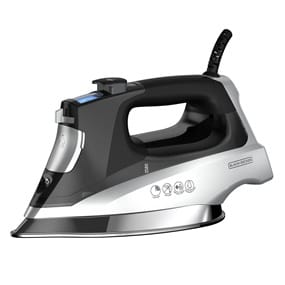
The same rep for Hamilton Beach spoke for Proctor Silex. This was a fortunate discovery made through Chi Steam, because the Proctor Silex website lists no phone number or email address. See above for details.
The rep added that all Proctor Silex irons have aluminum soleplates with non-stick coatings. She said she could not elaborate further on what was in the non-stick coatings. She stated they were PFAS-free.
Chi Steam


Chi Steam had a phone number listed on their website. A rep answered my call. She said all Chi Steam products had “titanium- infused ceramic soleplates” with a proprietary non-stick coating. During the discussion, she commented that Chi Steam was a subsidiary of Hamilton Beach. So again, you can see above for details about their products.
Chi is also available at stores like Target and Walmart.
PurSteam
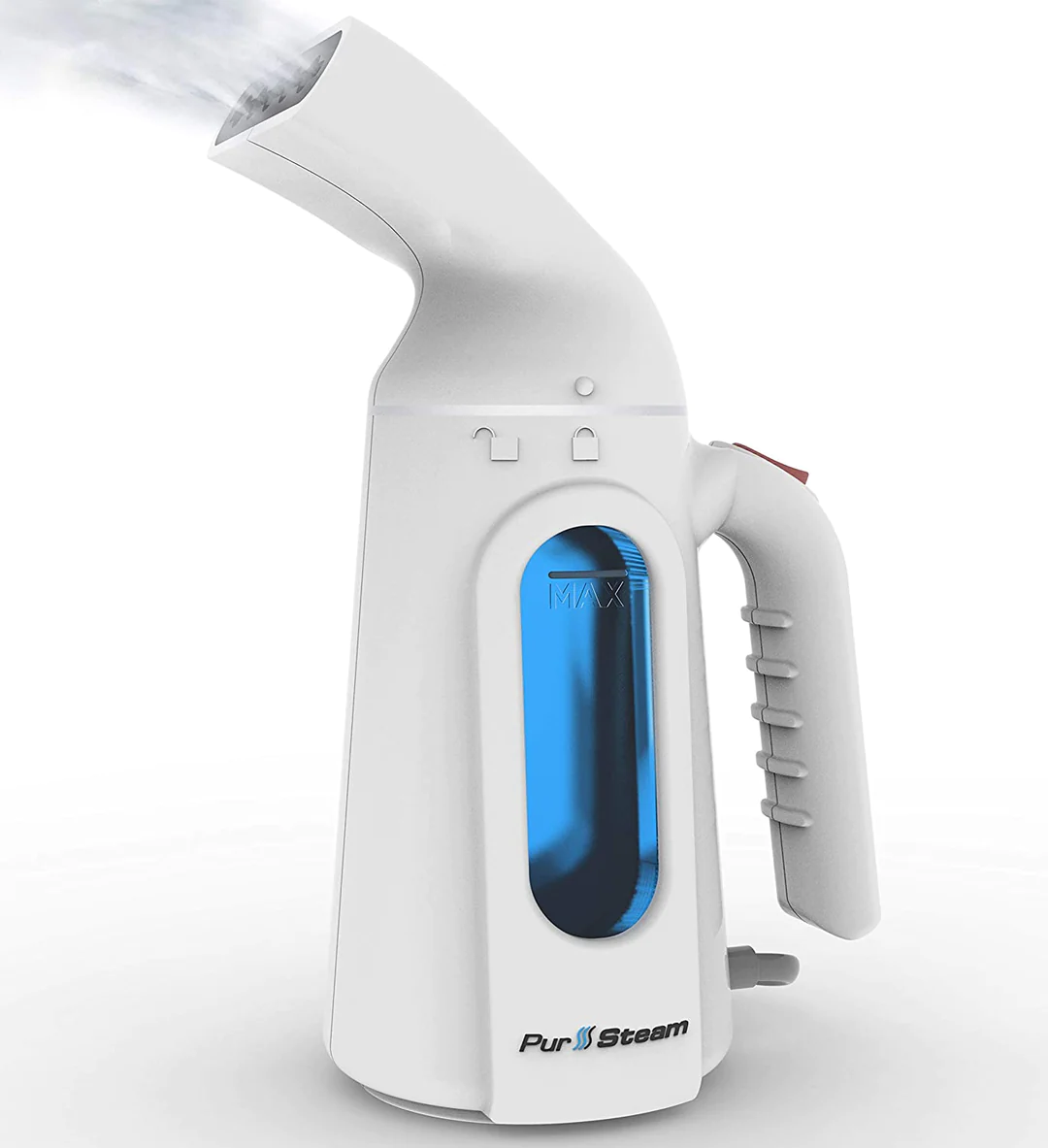

Reviewed and rated favorably by many people, PurSteam told me by email that there are no PFAS on their 1700W clothes irons and steamers, just “sheet steel.” (The same term used by the Mueller rep.)
The product description of their 1800W iron states that its “ceramic soleplate is scratch-resistant.” This phrase suggests there is a coating of some type, but I have not received confirmation of this from the company. I will post any updates here if and when I hear back.
Other Popular Clothes Irons and Steamers That Didn’t Make the Cut
In addition to the brands above, I analyzed websites and product pages of the following popular brands of clothes irons and steamers. I also sought out information by calling and emailing companies. Unfortunately, several of them did not have a customer service phone line. Usually in these cases, the email replies were insufficient, as I detail below.
Although poor customer service is not indicative of inferior products, it makes me wonder how responsive the company would be in case there was a problem with the item later.
I hope I’ll save you the trouble and time contacting companies. However, if you’re attracted to a particular brand because you had success in the past or really love other products they manufacture, then you may wish to inquire further about their clothes iron or steamer.
Maytag
Although the Maytag website has a page devoted to clothes irons, it redirected viewers to its flagship company. However, the redirect timed out twice. Then I attempted to call the customer service line for more information. An automatic message informed me that I had a 45-minute hold time. While I waited, I initiated a live chat. After 30 minutes on chat, another phone number appeared in the chat box, which I called. Finally, after all that searching, a company rep informed me that Maytag does not manufacture clothes irons anymore.
Sunbeam
I was able to speak to a customer service rep on my first try, which is commendable given all the trouble I’ve had during my investigations for this article. This could be a contributing reason why Sunbeam products are favorably reviewed in general. However, based on how the rep responded to my question about PFAS (she did not know that Teflon is a type of PFAS), I’m skeptical.
The rep told me that Sunbeam clothes iron and steamer soleplates could be aluminum, stainless steel, ceramic or Teflon. Unfortunately, this information is not on the website for each product, so you’ll have to call customer service to find out.
Randomly checking, I saw aluminum non-stick soleplate for one item, with no detail on what the non-stick referred to. Another model, 32610015, had an aluminum soleplate with a ceramic coating. Ceramic may be a type of soleplate material or a coating.
Similarly, she said steamer 32610023 had an aluminum soleplate coated with stainless steel. This is confusing since both aluminum and stainless steel are soleplate materials, not coatings.
Finally, I asked about the maximum temperature of the irons. After searching, the rep could only locate 450℉ for the travel iron.
Black and Decker
Another well-known brand name in home and garden appliances, Black and Decker (available at Big Box stores like Target and Walmart) sells many clothes iron and steamer models. I spoke at length with a customer service rep who at least entertained my questions. However, as soon as I said PFAS coating, she immediately said that all coatings were proprietary and could say nothing else.
She checked her database for PFAS and for polyfluoroalkyl substances but found nothing. She noted that she had never been asked about PFAS chemicals.
At least the company website is a little more informative than other brands. Visitors can search for an iron using various filters. One of them is soleplate. Black and Decker offers several types including ceramic, stainless steel, stainless steel non-stick, and TrueGlide non-stick. When I asked what non-stick and TrueGlide meant, the rep didn’t know. (Although I can’t say for sure, non-stick materials with names like TrueGlide are traditionally proprietary formulations that use PFAS.)
One helpful thing I learned is that the highest temperature setting for all Black and Decker irons is 374℉ for cotton/linen.
Beautural
When I asked if any of their clothes irons or steamers contained PFAS, a rep told me that they “currently have one iron which contains PFAS”: the mini-travel iron. I followed up to be sure all of their other products are PFAS-free, but have not received a response.
Utopia Deals
Utopia Deals told me that their iron doesn’t contain PFAS. Then I asked about their soleplate’s material. A customer service rep said it was non-stick aluminum. In response, I asked what made it non-stick. The rep followed up with: “ceramic powder (20%) and organic resin.” I followed up with a question about the organic resin, and am waiting on a reply. I’ll post updates here if and when I hear back.
My Top Choice For A PFAS-Free Ironing Board Cover
If you’re looking for a PFAS-free clothes iron or steamer because you want to avoid these hazardous chemicals in your life, then a PFAS-free ironing board cover makes sense.
My top recommendation goes to the small Italian company Tivit. It’s made in Italy out of 100% unbleached and untreated cotton and wool.
10 Tips When Buying A PFAS-free Clothes Iron or Steamer
Because of the lack of company transparency regarding PFAS on clothes irons and steamers, it’s easy to feel confused or even worried about the products you’re considering purchasing. That’s perfectly understandable… You want to protect yourself and your family!
With this goal in mind, here are 10 general tips when navigating the purchase of a PFAS-free clothes iron or steamer. I developed them based on exchanges with customer service reps of over 10 brands:
- Don’t assume the term non-stick means that PFAS are present… But it definitely could mean PFAS are present.
- Conversely, don’t assume the lack of the term non-stick means that it’s PFAS-free.
- Don’t assume reps will know what PFAS are. Be ready to educate. Your question may be the first time reps hear the word.
- Be aware that reps have access to more product information than what you see on the company website, but they may not be allowed to tell you.
- Know that soleplates are different from soleplate coatings. (It seems obvious, but you’d be surprised to hear some reps using these terms loosely.) Reps should be able to tell you what the soleplate material is. They may not know if there’s a coating on it, let alone what it’s made of.
- Be suspicious of products that have a patented coating with a unique name such as Durathon. You’ll be told it’s proprietary. In this case, ask specifically if PFAS are present in the coating or not rather than just asking what’s in it. You may not get a yes-or-no answer.
- Don’t assume that certain soleplate materials, such as stainless steel, are never coated with PFAS, like some sources claim.
- Always ask about a clothes iron or steamer by its specific model number.
- Never accept a rep’s statement that their products meet government or manufacturer standards to mean that the products are PFAS-free. These are two different things.
- You will probably have to ask about temperature settings because this information is rarely on company websites. The values you’re given are estimations. Assume a +/- 10-15℉ difference in practice.
Key Takeaways on PFAS-Free Clothing Steamers and Irons
PFAS are harmful chemicals that are widespread in consumer products, and clothes steamers and irons are no exception. To protect yourself, it’s a good idea to limit your exposure through the things you can control, such as all the products you buy.
After an exhaustive search, I’ve identified the clothes steamers and irons which have not been coated with PFAS. However, it’s always best to confirm this with a company before purchase because materials or coatings may change without notice.
In this article, you’ll find PFAS information I’ve received from customer service reps about the appliances of over 10 popular brands of clothes steamers and irons. The clear leader for a PFAS-free clothes iron or steamer is Rowenta.

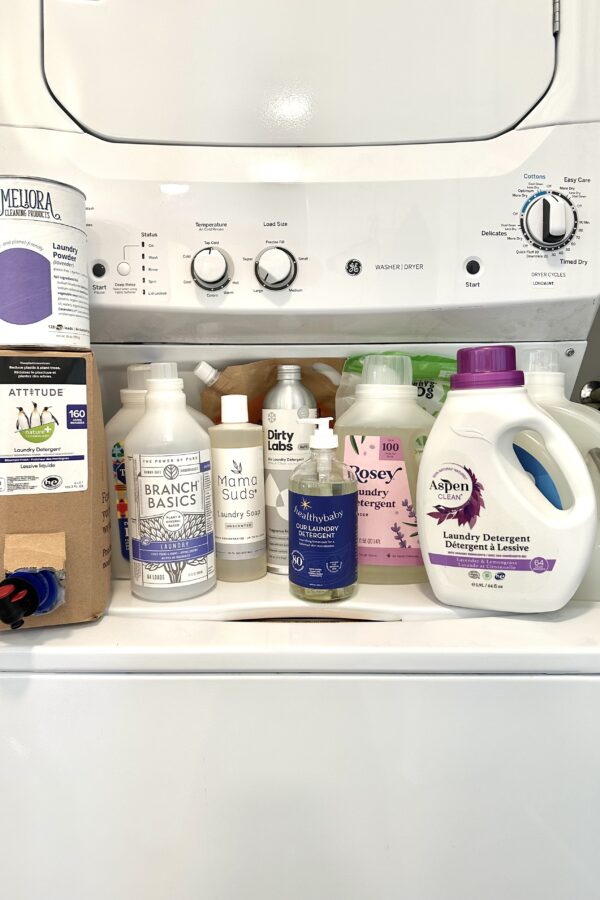

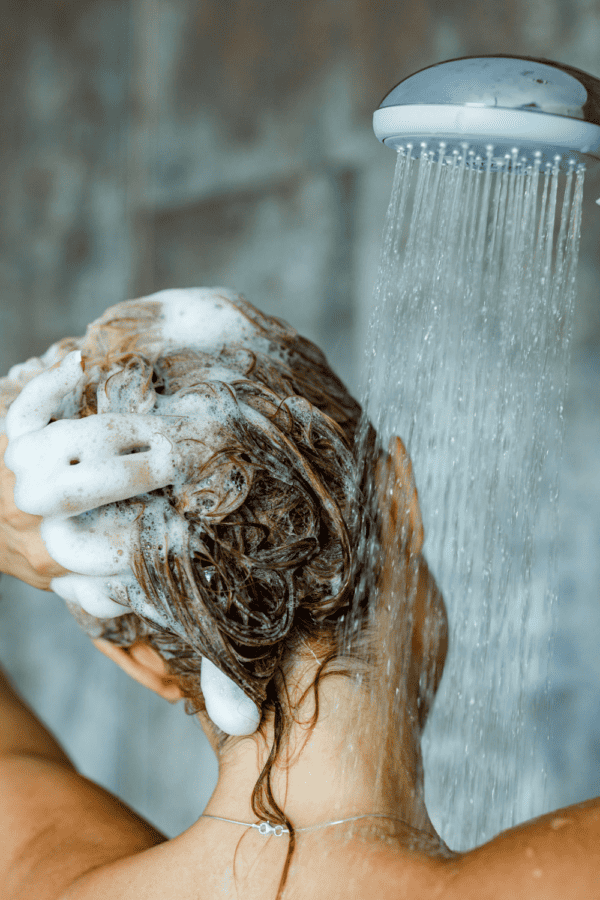
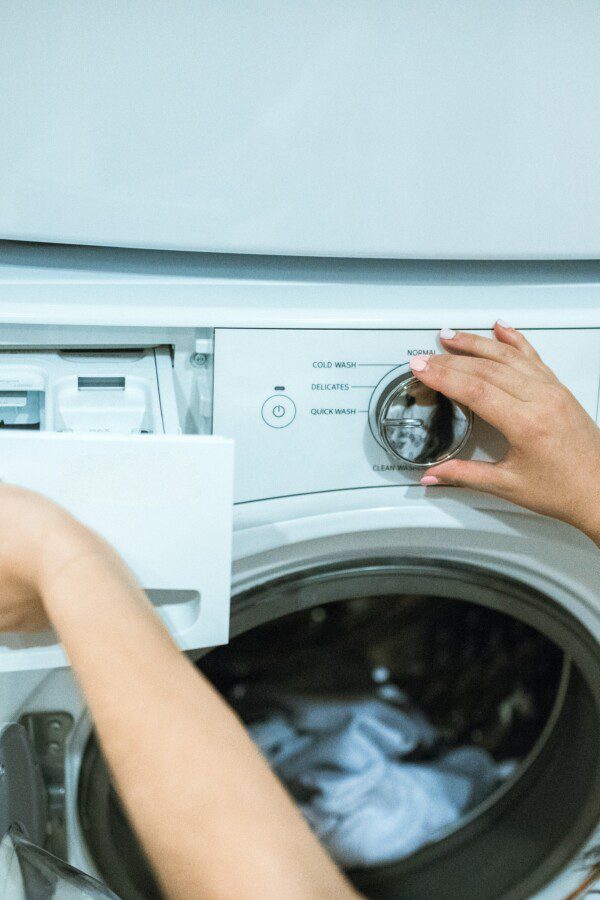
I discovered a similar issue when researching hot water kettles. I was looking for materials/designs that didn’t have coatings, didn’t have boiling water coming into contact with plastics, didn’t use toxic plastics, and used stainless steel as opposed to something like aluminum.
Most of the bigger names didn’t have the information available or responded with the usual “we comply with all regulations and just use steel”, when a quick look at the product would confirm that claim was not true (plastic spouts, for example). A couple would even advertise “high quality stainless steel and shatter-resistant glass” and then you’d look at the product and clearly see copper alloys, plastics, etc… all coming into contact with the water.
It’s frustrating. But you’re doing great work so that we don’t all have to go through this process!
YEP! We are trying to work on a guide for kettles, too. 😉